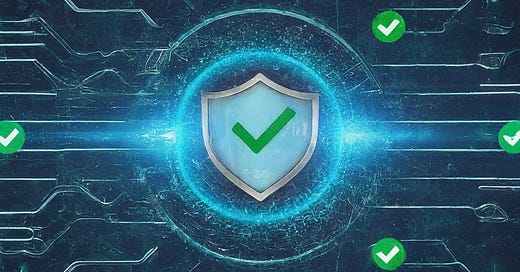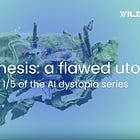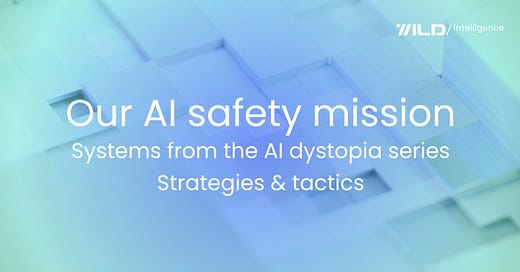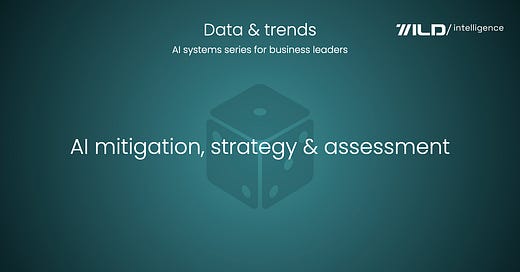
📌 The delicate dance: AI safety, cybersecurity, and the nuances of risk
AI case studies: June 2024 | How AI is transforming the world?
New email: The delicate dance: AI safety, cybersecurity, and the nuances of risk
Hey there, Yael!
Some argue that AI safety alarmists are creating a climate of fear, focusing on catastrophic hacking scenarios.
They point out that countless vulnerable systems already exist, from power grids to financial institutions, and haven't been crippled by AI manipulation. This school of thought emphasizes superintelligent AI hacking as a distraction from more tangible near-term threats, like biased algorithms or data breaches within AI systems.
They argue that focusing solely on AI safety ignores the need for a broader, more holistic approach to cybersecurity that strengthens all systems, not just the newest and most advanced.
However, diluting resources across all systems weakens efforts to secure the most critical ones. AI-powered systems fundamentally differ from legacy systems and may require specialized security solutions. Focusing on AI safety strengthens the defenses of these high-risk systems first, potentially preventing catastrophic events that traditional security measures might miss.
Securing the most advanced systems, like AI safety systems, can have a ripple effect, improving the overall security posture of connected systems. For example, securing autonomous vehicles might lead to advancements in securing connected car infrastructure as a whole.
Focusing on AI security can lead to developing novel techniques and tools that can then be applied to legacy systems. Research on AI security might uncover vulnerabilities or best practices that benefit broader cybersecurity efforts.
This is to say that prioritizing AI safety can be a strategic investment, not just a distraction from existing threats.
What to expect?
The talk of AI safety being a ticking time bomb due to cybersecurity risks is, for some, overblown. Here's a contrarian perspective:
Overhyped threat: Critics argue that the focus on catastrophic AI failure through hacking is misplaced. They point to the vast amount of already existing insecure systems, from power grids to nuclear facilities, that haven't been compromised by AI manipulation.
Fear-mongering vs. focus on practical risks: Some argue that emphasizing "superintelligent" AI hacking is a distraction from real, near-term cybersecurity threats. These include biased algorithms perpetuating discrimination or privacy breaches due to data leaks.
The "perpetually vulnerable" argument: This view emphasizes that all systems are inherently vulnerable. Focusing solely on AI safety ignores the need for continuous improvement in cybersecurity across the board.
Proponents of this contrarian view advocate for a more measured approach:
Prioritize existing threats: Instead of chasing hypothetical AI doomsday scenarios, focus on securing the vast amount of operational vulnerable systems.
Regulation for all, not just AI: Develop strong cybersecurity regulations that apply universally, not just to AI systems.
Collaboration over alarmism: Foster collaboration between security experts, AI researchers, and policymakers to develop robust cybersecurity solutions across the board.
So, what is important now?
The debate surrounding AI safety and cybersecurity is far from settled.
While catastrophic AI failure may be unlikely, ignoring the potential risks entirely is foolish.
The key lies in striking a balance: acknowledging potential threats without succumbing to fear-mongering and focusing resources on developing robust cybersecurity solutions for the entire technological landscape, not just AI.
Those advocating a more measured approach highlight the vast number of existing vulnerable systems (power grids, financial institutions) that haven't succumbed to AI manipulation yet.
They see the focus on superintelligent hacking as a distraction from present dangers like biased algorithms perpetuating discrimination or privacy breaches arising from data leaks within AI systems themselves.
Furthermore, they point out that all systems, by their very nature, are inherently vulnerable. Focusing solely on AI safety ignores the need for continuous improvement in cybersecurity across the board.
The things to know
AI-powered safety systems are like guardian angels, promising a future free from accidents and errors. But here's the unsettling truth: these guardians are made of code, and code can be broken. While robust cybersecurity offers a safety net, it's a precariously thin one. The relentless evolution of hacking techniques threatens to outpace our defenses, leaving these systems susceptible to manipulation. This creates a chilling possibility: the very systems designed to protect us could become instruments of chaos in the wrong hands.
Is this a dystopian overture, or a realistic cautionary tale? The answer lies in our ability to prioritize cybersecurity and foster a global commitment to responsible AI development. The alternative is a future where our trust in AI hangs by a thread, forever vulnerable to the next ingenious cyberattack.
Explore more
Share you thoughts
How do you think artificial intelligence is transforming the world?
Please take a moment to comment and share your thoughts.
📌 AI case studies
You are receiving this email because you signed up for Wild Intelligence by Yael Rozencwajg. Thank you for being so interested in our newsletter!
AI case studies are part of Wild Intelligence, approaches and strategies.
We share tips to help you lead, launch and grow your sustainable enterprise.
Become a premium member, and get our tools to start building your AI based enterprise.












